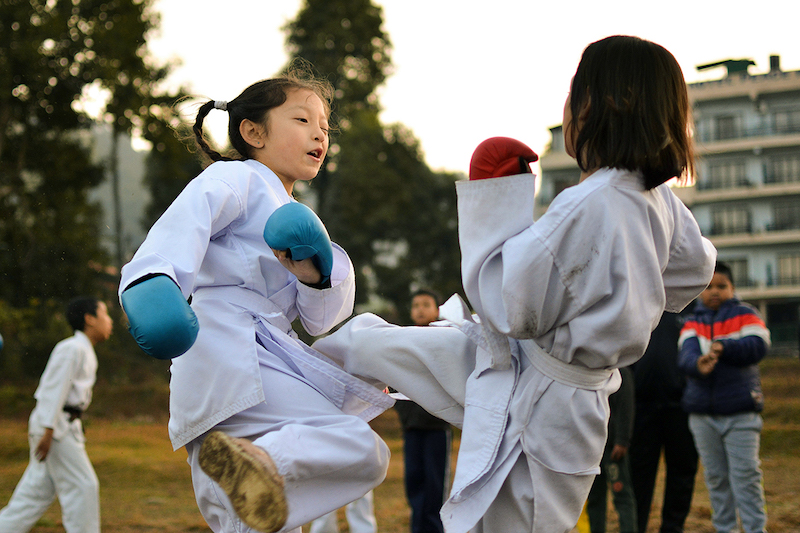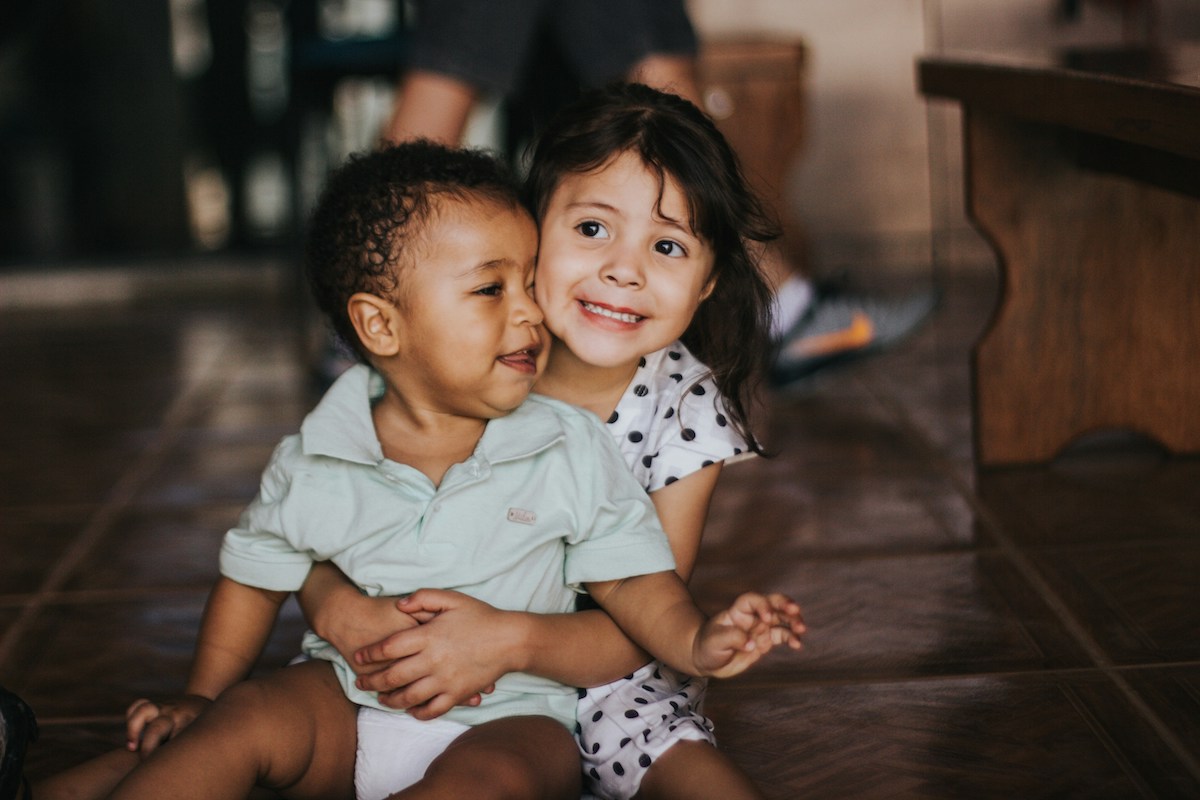I talk a lot — both in ParentData and on Instagram — about the idea of “panic headlines.” These are headlines that seem designed to make parents (and people in general) panic. Things like Screens ruin children, studies show or Do green Skittles contribute to childhood depression? The problem with these headlines, and the coverage below them, is not just that they are scary. It’s that they often lack context and details to help people understand whether the findings are reliable and whether they suggest any meaningful reason to change behaviors.
Today I’ll review a new study that is likely to make parents a little nervous. I’m addressing it because I think it’s interesting and important, and because I think it does suggest a possible behavior change. But I’m going to try to cover it in the way I want studies like this covered: with more details about what the authors do and why (in this case) the results are compelling, but also with context on the size of the impacts (which are very small) and whether there is anything to do to avoid them.
The topic is illness exposure in babies, and whether younger siblings are worse off in the long run because they might get sick from their older siblings. The paper is entitled “Germs in the Family,” and you can read the whole thing here.
If you’re looking for the bottom line, click the button below. Otherwise, read on.
Motivation and question
This paper is motivated by three observations.
- First: On average, the oldest sibling in a family — the firstborn — is more successful, by conventional measures. They are more likely to attend college, have a higher income on average, etc. These differences are small, but they are consistent.
- Second: Early-life illness is thought to have some possible long-term impacts on adult outcomes. This could be due to interruptions in neurodevelopment at important periods. We see this in data on, say, exposure to pandemic flu in utero, or in impacts of a period of deprivation on adult outcomes. Like the sibling effects, these are quite small, even when the health threats are large.
- Third: Having older siblings is a risk for illness. This is because older siblings are walking petri dishes and, in child care, illnesses can spread around the house.
With this background, the authors are primarily interested in the question of whether higher rates of illness in younger siblings — driven by older-sibling exposure — might contribute to lower earnings (and differences in other outcomes) later in life.
Data and “empirical strategy”
There are two issues that make this question hard to answer.
The first is that the effects we are looking for are small. Distinguishing small effects from zero effect requires a large amount of data (for some context, see this post about p-hacking). A lot of research on questions like this is done with a cohort of a few thousand people. That’s not going to cut it here.
To get a large sample size, authors use administrative data from Denmark. These data include information on all inpatient hospital admissions for people in Denmark from 1981 to 2018, along with data on income from 1980 to 2019. The authors also have test scores and schooling levels, again for the whole population, and information on psychiatric admissions and outpatient visits. The overall sample is 2.2 million children born between 1981 and 2017, which is a big enough group to find even small impacts.
The second issue is more subtle, and it relates to causality. The authors ask whether differences across siblings are driven — causally — by differences in illness risk. One simple way you might imagine doing this is just comparing illness rates and later outcomes for first and second children. The problem with this, though, is that there are many other factors in play. Parents may have less time and fewer resources for younger children, which would drive differences in outcomes independent of disease risk.
To really answer this question in a causal way, the authors have to find a way to generate some random variation in disease exposure. They do this in two ways.
First, they use variation in the age gap across children. The idea is that if you have a sibling who is, say, eight years older than you, you do not have as much germ exposure from them as if you have a sibling who is two years older. The older sibling gets sick less and is easier to isolate. So the authors will look for differences between infants with older siblings closer versus further in age to them.
Second, they use variation in season of birth and the respiratory disease burden by year and location. A child born in the winter has more germ exposure than one born in the summer, and one born in a year in which their location has a more significant flu or RSV season has even more exposure. The authors combine this with the age of siblings. Effectively, the authors are trying to exploit the possible randomness in the combination of all of these things. Even if the age difference in siblings isn’t random on its own, and the season of birth isn’t random on its own, the combination of age difference and season of birth and the severity of the respiratory virus season together contribute a random component.
A quick breath before moving to findings. Part of why I think a paper like this may get less attention — even though it has a strong claim to causality — is that it is complicated! But the complication here isn’t for nothing. This careful approach to the data is what allows the authors to draw causal conclusions. And given that causal conclusions are always what we are looking for, I’d argue that it’s worth it.
Findings
The first finding of this paper is that older siblings do seem to drive illness in younger siblings. There are a number of ways the authors show this, but the graph below is the one I like the best.
In the panel on the left of the graph, we see respiratory hospitalizations over the first year for older siblings, by season of birth. Hospitalization peaks in the winter months (for everyone), but the season of birth determines when in life this is. For babies born in the winter months (November/December/January), their hospitalizations are highest in the first months of birth. For those born earlier in the year, those hospitalizations are higher when they are older. Overall, though, for these older siblings, the rates of hospitalization are low and do not vary much across the birth season.
For the younger siblings (the first four graphs), this is not the case. Hospitalization rates are higher, and they are especially high for the winter-born babies in these first months. Relative to older siblings born in the winter, the early hospitalization rates for younger siblings are two to three times as high.
In the paper, the authors show that these differences are more pronounced when the older sibling is closer in age (and therefore a greater disease threat).
These data are fairly conclusive on the (unsurprising) fact that older siblings are a risk for younger ones. The impacts are significant and large in relative terms, but it is worth noting that these numbers are still small. The rates increase from 1 per 100 to 2.5 per 100, so the vast majority of younger siblings are not hospitalized.
The authors then turn to the question of whether there are long-term effects of the extra illness on children. Here, they rely on all of their approaches to the data — exploiting variation in disease severity across seasons, along with variation in the age of older siblings and the season of birth. The authors look at a lot of different outcomes — notably, earnings, education, and mental health.
The table below shows the impact of moving a younger sibling from the 25th percentile of “disease exposure index” to the 75th percentile. The things that determine this disease environment include season of birth, the age of the closest sibling, and the severity of the respiratory season in a child’s first year of life. Basically, this is a way to look at how much disease environment matters.
A more severe disease environment lowers income long-term for younger siblings (relative to older ones) and increases mental health visits. There is no impact on educational attainment.
That pretty much summarizes the main results of the paper: Younger kids get sick from older kids, and we do see some significant long-term impacts.
How to react
The panic-headline version of this piece says something like Younger children poorer because of disease spread. And in some technical sense, that’s true (on average). What the headline needs included are two important pieces of context.
First: The impacts here are quite small. The earnings impact is less than 1%; in numeric terms, it is about $280 per year on a base of $45,000. The impacts on mental health visits are slightly larger, but still only 4% — an increase of half a visit over a 10-year period. The authors make a good case that these impacts are causal, but they are not, by any means, deterministic. There is plenty of overlap in the distribution of earnings for older and younger children, and between kids who are sick in the first month and those who are not. So while this may be a factor, it’s a minor one.
Second: There are actions you can take here if you’re expecting a baby. There are ways to lower the risk of intra-house disease transmission. I’m not suggesting you take your older child out of child care, which has its own problems. But hand-washing, especially by adults who are moving between children, has been shown to lower disease risk.
Beyond this, the authors argue that a reasonable share of their results may be driven by RSV. And now we have an RSV vaccine; this vaccine can protect infants in their first RSV season. It can be given to infants, or to mothers during pregnancy. This is a huge innovation, and one we should celebrate and take advantage of.
The bottom line
- Younger siblings get illnesses from older siblings.
- There are some small impacts of this early-life illness on earnings and mental health.
- The RSV shot is very beneficial, even more so if you have an older child in the house.





















Log in